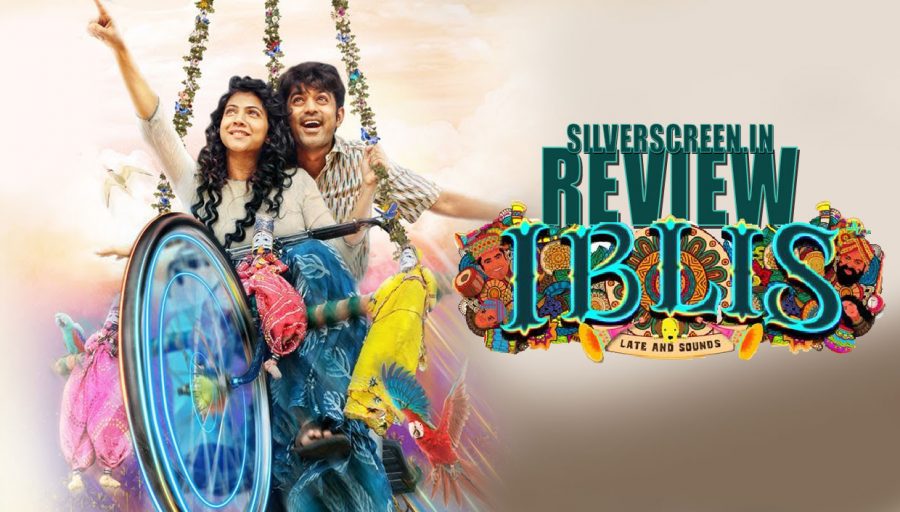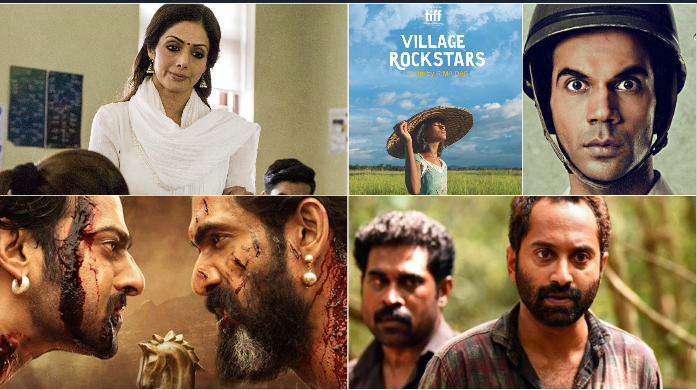Director: Rohith VS
Cast: Asif Ali, Madonna Sebastian, Lal
Music: Dawn Vincent
Spoiler Alert
A little boy, walking home from a funeral in his village, asks his grandfather, “Where do people go after death?” The grandfather, whose face we don’t see yet, laughs and tells him that they never quite go away, but continue to live around the living. The camera fixes itself on the little boy’s terrorised face, as he looks around for clues to what he just heard. The moment encompasses an infectious sense of wonder and childish curiosity that underlines Iblis, a fantasy-drama.
Directed by Rohith VS, Iblis is not perfect. It has an inconsistent texture that sometimes goes overboard with quirkiness. The story that it attempts to tell isn’t hard-hitting. The cinematography isn’t the best – it follows a style too familiar and overused, and the visuals don’t really hold your attention. The narration goes from flashbacks to a flashback-in-a-flashback, and ends up losing clarity.
Nevertheless, the film is thoroughly likeable; perhaps one of the most interesting works in Malayalam commercial cinema in recent times.
Iblis re-imagines death as a beginning, and life as a nonsensical comedy. It tweaks the definition of Iblis, the evil character from Islamic texts, and gives him a smart makeover. After all, isn’t grey the most interesting shade?
Rohith’s debut film Adventures Of Omanakkuttan (2017) centred around a troubled young man with a blurred memory. In one of the scenes, it seamlessly blended magical realism into a realistic narrative. In Iblis, he reshapes realism by adding in old-fashioned theatrical elements which, for the most part, work really well. Although there is no other great cinematic risk-taking, the film stays away from most cliched situations, and possesses a fresh sense of humour. With its foot planted on an Amelie-sque comic terrain, the film discusses the larger themes of human existence and death.
Vyshakhan (Asif Ali) lives in a village cut off from time and the outside world by a river. The villagers follow a strange set of beliefs and rules. For one, every funeral in the village is an excuse for partying. Not even immediate family members and close friends of the dead person shed tears for her/him, and memories about the person quickly fade into oblivion. This inability to mourn for the dead is part of a curse, believes Sreedharan (Lal), Vyshakhan’s grandfather, a wanderer who has been to the world across the river and beyond. He takes it upon himself to save his grandson from rotting in the island, living life the plainest way. He makes him fall in love, and urges him to trust his instincts. But, before anything more can be done, Sreedharan has to leave the village again, to the other side.
What the film really wants to explore are the proceedings in the second half, where the ‘Other Side’ is exposed to the audience. It is a fantastically-staged scene where Sreedharan shows Vyshakhan the world that was invisible to him when alive. The little details that the film adds to flesh out the concept are great. Here is a sample. Every night, the community of dead people meets at a local toddy parlour to chat, and they watch Sukumaran (Saiju Kurup), a local Romeo sneak in to steal some bottles. “As though no one can see what he is up to,” laugh the dead people, as they tease Sukumaran’s late father. In another instance, Sreedharan meets his late grandfather who looks younger than him – he died early. “The sooner you die, the better,” Sreedharan tells Vyshakhan, his face rife with regret. “Death stops you from ageing. I should have tried dying much earlier.”
Mind you, this doesn’t make the film’s underlining statement pro-suicide. The elements of the film are quintessentially feel-good. It turns conventional ghost stories on their head, and lets the characters break the fourth wall and ask the audience to take everything lightly – death and life, especially life.
It is hard to not invest in the idea that the film puts forth. Like a Studio Ghibli anime, Iblis convincingly creates a whole new universe for the characters to dwell in. It stays away from being saccharine sweet or painfully gaudy like Charlie. The protagonists Vyshakhan and Sreedharan are not know-it-alls who sit on a higher pedestal than the audience. As the film proceeds, they discover the wonders of the universe together. Most importantly, they simply exist.
However, when you want to probe a little deeper into the logical side, not everything is well in Iblis. Every fantasy movie, no matter how absurd it might seem, is founded on a mathematical equation that could be perfectly applied to all its scenarios. In Iblis, Rohith and writer Sameer Abdul pour buckets of colour on their math book to hide the miscalculations. The contrast between the world of the living and the dead isn’t stark enough. The villagers don’t look very unhappy in their modest existence. You don’t really see why a happy funeral is a bad thing. Isn’t forgetfulness a blessing?
Recommended
It nothing else, Iblis is a powerful testimonial to what Rohith could be in a film industry that is, for the most part, consumed by market trends and stories about machismo. His male characters are not shy to reveal their bruises and weaknesses. He attempts to narrate ambitious tales that urge the audience to watch and wonder, instead of trying to force them into finding answers to every question asked. Iblis, like a piece of his dream, has rough edges aplenty, yet it is an immensely refreshing watch.
The Iblis review is a Silverscreen original article. It was not paid for or commissioned by anyone associated with the movie. Silverscreen.in and its writers do not have any commercial relationship with movies that are reviewed on the site.



